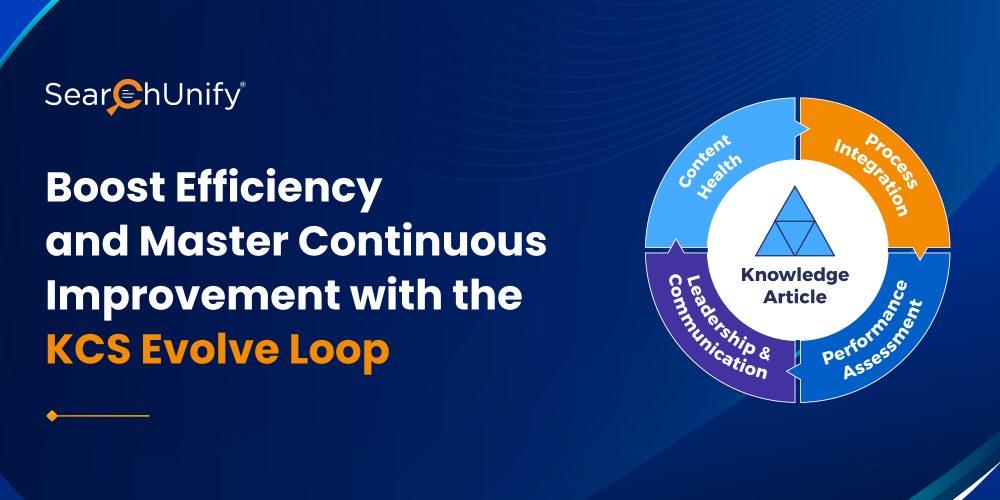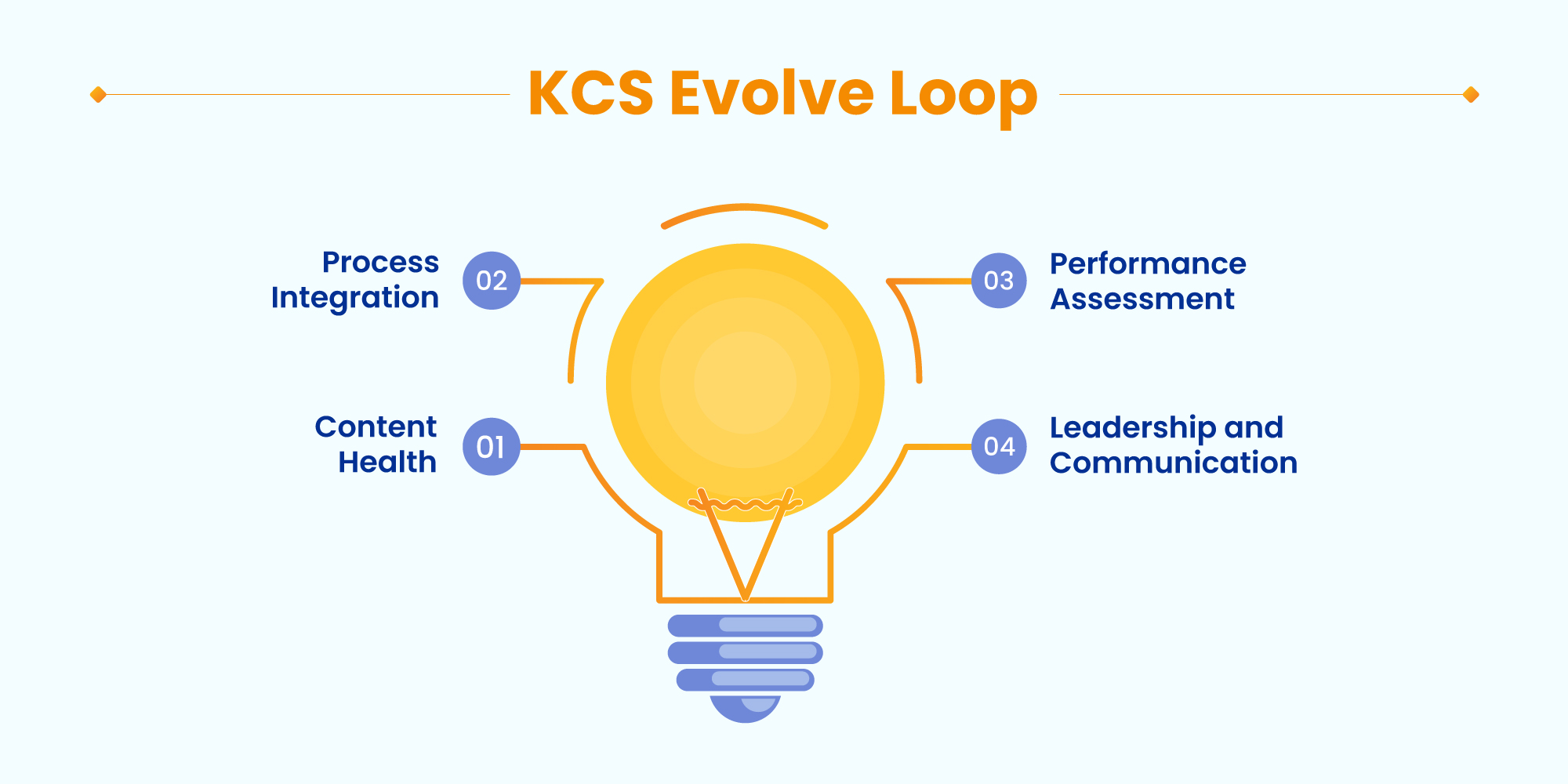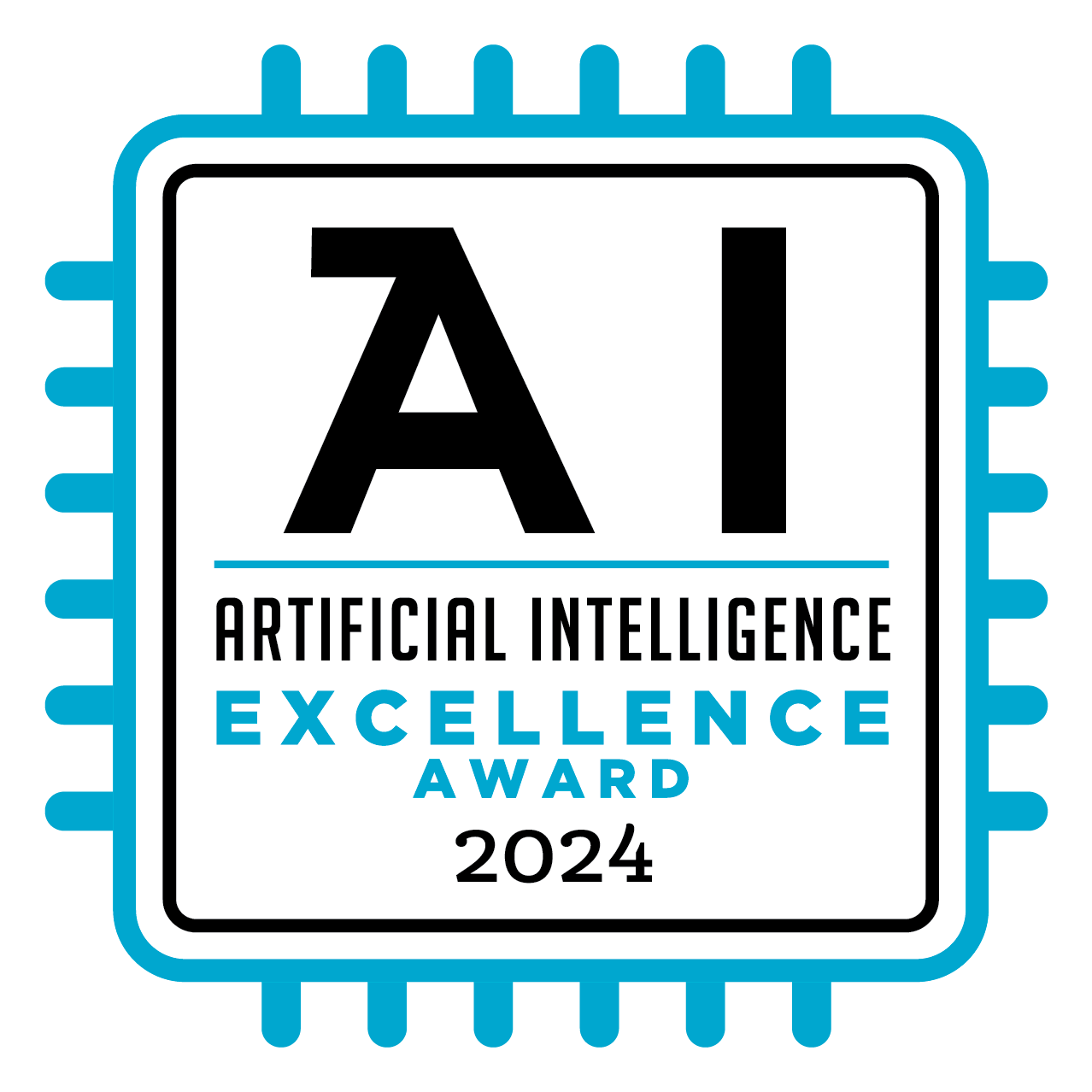
In the previous article ‘Maximizing on the KCS Solve Loop for Knowledge Management Success,’ we discussed the phases of Knowledge-centered Service (KCS Solve Loop), the key barriers to its adoption, and how cognitive technology facilitates the implementation.
In this blog post, we will shift our focus to the evolve loop, which reflects on and learns from a collection of Solve Loop tasks and associated knowledge articles. The Solve Loop and Evolve Loop together create a system that is self-correcting. The Evolve Loop depends on people doing the right things in the Solve Loop. Let’s delve into this deeper.
What is The Evolve Loop?
The Evolve Loop of the KCS process allows you to continuously enhance your knowledge base and support processes. Allow me to elaborate on it further.
The Evolve Loop consists of the following stages:

-
Content Health Assessment: In the process of improving content, evaluating its searchability and usability is key. While technical completeness and grammatical accuracy are important, they should not overshadow the primary goal. That said, Knowledge Domain Experts should look for content gaps on the web using search and browse analytics. This helps identify user issues that were pursued through self-service but remained unresolved.
Then, they can create articles that address these gaps or refine existing ones based on how users are searching for the answer, which improves the findability of existing articles. Archiving old articles or those with no value is an effective way to keep the knowledge base up to date. By doing so, users can focus on relevant and useful information without being overwhelmed by irrelevant or outdated content.
-
Process Integration: Successful implementation of KCS requires seamless integration in both processes and technology. Here again, your knowledge workers need to have the expertise to diagnose user queries, conduct effective research, and provide solutions. Advanced cognitive products play a crucial role in this regard, as they can fetch results from multiple repositories and display them within the service console.
Next up, process integration indicators (PII) should be used to evaluate your team’s value creation. This includes assessing factors such as the number of articles created, reused, and modified, as well as the accuracy of articles and links.
-
Performance Assessment: The philosophy of KCS not only emphasizes implementing advanced technology but also fosters a culture of shared responsibility and collaboration. This means rejecting the “hero mentality” and “stack ranking” of employees instead of prioritizing teamwork. Rather than rewarding individuals for their contributions, KCS recognizes teams for their collective knowledge and collaboration.
To establish and encourage this culture, strong leadership and communication are essential. Additionally, the KCS philosophy requires assessing individual and team performance by linking individual goals to departmental and organizational goals, considering multiple perspectives on performance, and distinguishing between activities and outcomes. By embracing these principles, organizations can cultivate a collaborative and effective team environment.
-
Leadership and Communication: In order to successfully implement KCS in your organization, it is crucial to prioritize leadership and communication. Effective leadership involves more than just day-to-day management; it requires aligning the team with organizational goals and motivating team members through performance drivers.
Leadership plays a critical role in several key areas, including defining and setting goals for desired outcomes, ensuring that tools and infrastructure are integrated and aligned with workflow, making it easy to do the right thing, providing knowledge workers with visibility into performance indicators so that they can take responsibility for managing their performance, and providing knowledge workers with visibility into the impact of their contribution.
Still Wondering, Why Knowledge-Centered Service?
The KCS evolve loop is a critical component of the KCS methodology. Once organizations embrace the KCS Evolve Loop, they can build a culture of continuous improvement and achieve knowledge excellence, resulting in significant business benefits.
Also, tune into this on-demand webinar where Brian Corcoran from SearchUnify dived deeper into cognitive products that can power KCS and improve knowledge linkage and creation through existing organizational workflows.
Are you curious about the benefits of KCS, but worried about the challenges of implementing it into your organization? Why not take our product for a test drive and discover the possibilities? With this product, KCS implementation can be as easy as a walk in the park!



















